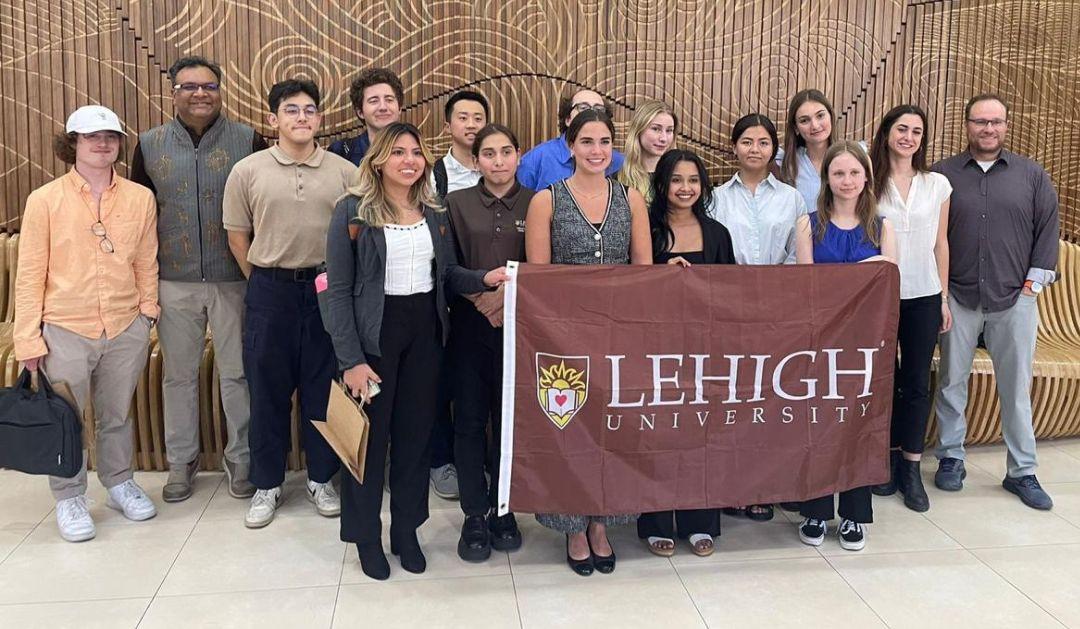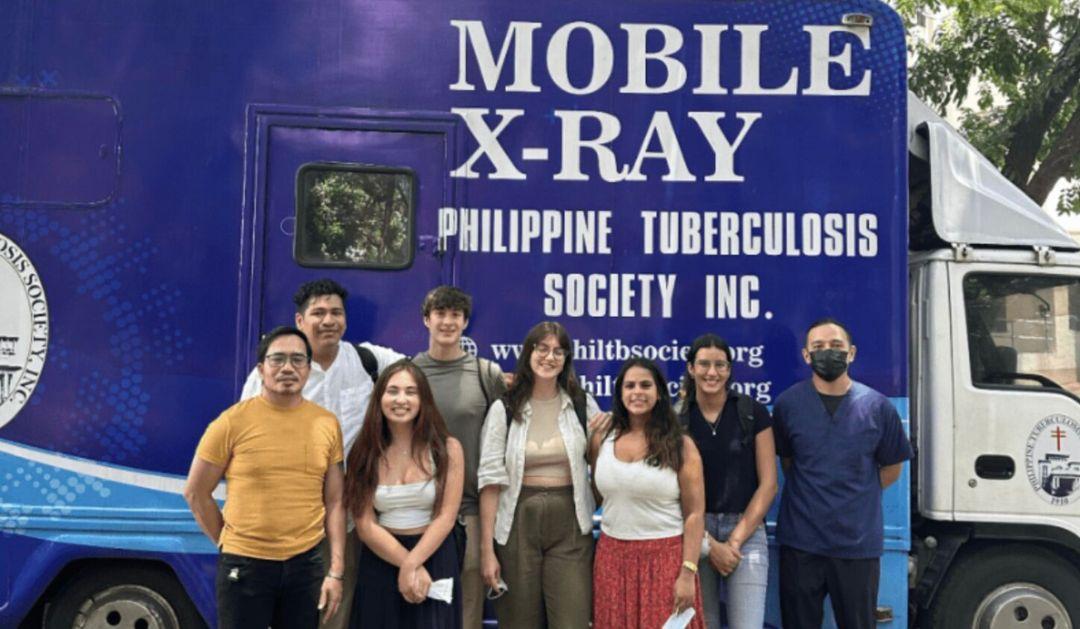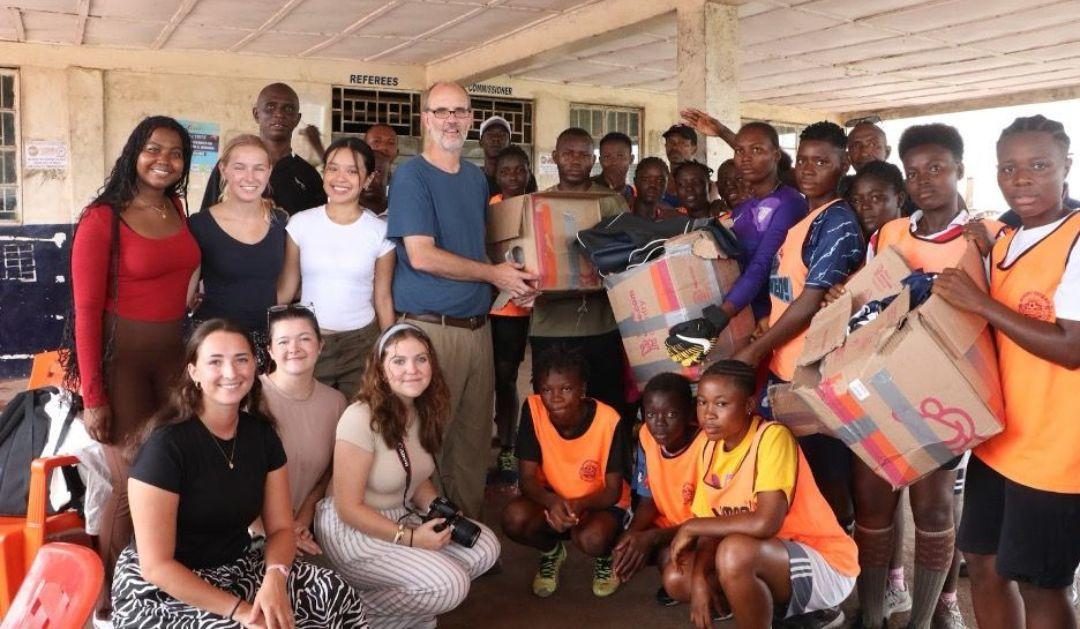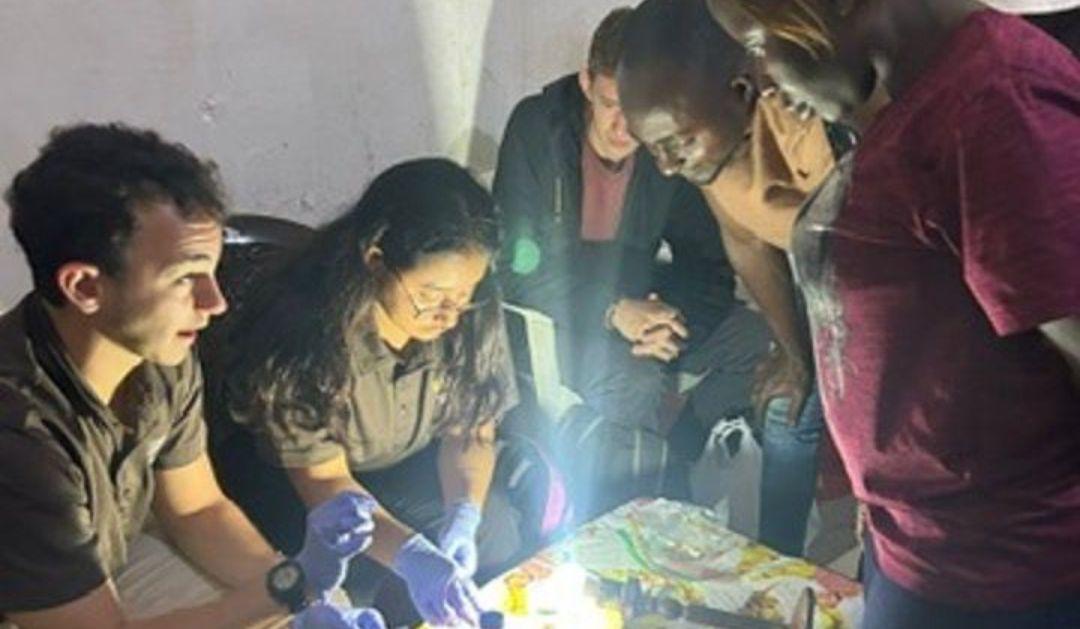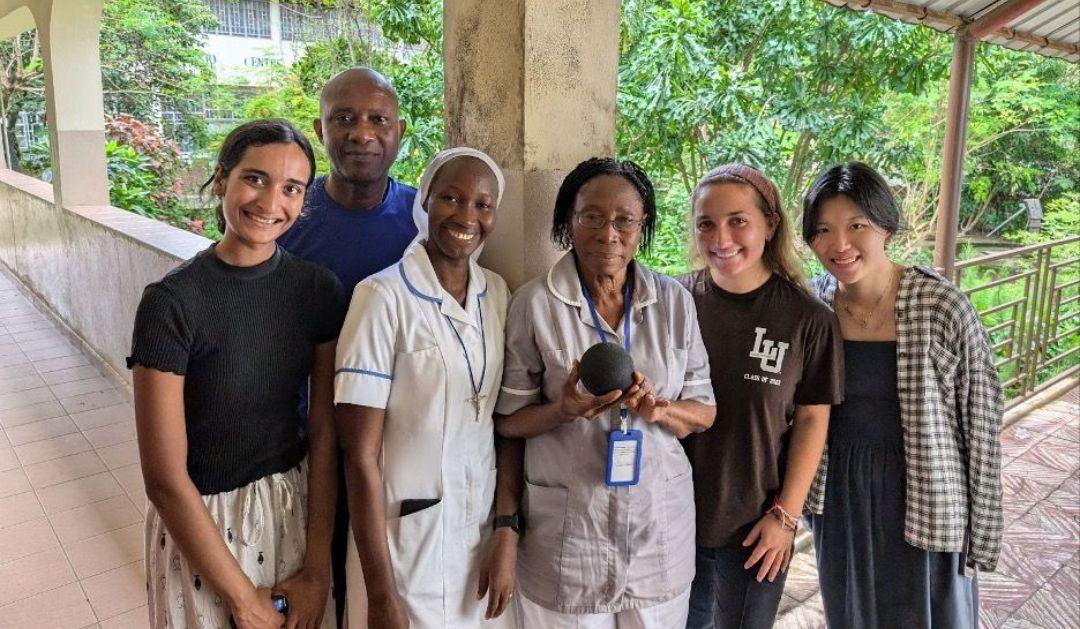Seventy-nine Lehigh students and 11 faculty mentors spent the summer driving change in real time, conducting fieldwork through Lehigh University’s Impact Fellowship program across five locations around the world: Sierra Leone, the Philippines, Kazakhstan, India and San Francisco.
Impact Fellows are a highly self-selected cohort of students from all disciplines across Lehigh University, focused on addressing sustainable development challenges in low-resource and middle-income countries and communities across the world. Impact Fellows advance multi-year projects in the spring and fall semesters (total six academic credits) and engage in faculty-guided fieldwork with diverse local partners during the summer.
As they transition back into academic life, the Impact Fellows reflect on the real-world lessons they learned that went far beyond travel. They’ve honed the art of adapting to uncertainty, learning from failure and co-creating solutions with diverse communities, all in pursuit of lasting, sustainable change.
One of the guiding voices in this journey was Eric Obeysekare, teaching assistant professor in computer science and creative inquiry, and a mentor for several Global Social Impact Fellowship project teams. Obeysekare, who accompanied his project teams on fieldwork in Kazakhstan, the Philippines and Sierra Leone, emphasized that resilience in the face of uncertainty is one of the core lessons students develop through the program.
"While traditional classes offer structure and predictability, fieldwork is a different experience entirely,” he said. “Resilience and the ability to navigate ambiguity are critical for addressing the world’s most pressing challenges, and are key skills that Creative Inquiry students develop during fieldwork.”
Megan Thomas ’27, a molecular biology major and Silicon Valley Social Impact Fellow, quickly grasped this during her two weeks in the San Francisco Bay Area, where she worked on a healthcare access initiative for undocumented immigrants.
“Our initial plan was to solve a specific problem, but we quickly realized it wasn’t an isolated issue,” Thomas said. “It was part of a more complex, interconnected system that required a holistic approach and a deeper exploration.”
Sean Vassilaros, adjunct professor of computer science and business, echoed this sentiment, underscoring the importance of collaboration with local partners. He accompanied students to Kazakhstan and the Philippines and stressed that sustainable change can’t happen in isolation. Vassilaros also emphasized that optimism and an entrepreneurial mindset are key drivers of progress in challenging environments.
“Collaboration with local partners is crucial to understanding the broader system and identifying the root causes of issues," Vassilaros said. "Students work closely with community organizations, local governments, universities and other stakeholders to co-create solutions that are both culturally relevant and sustainable. With a spirit of optimism and innovation, they approach each challenge not as a barrier, but as an opportunity to think creatively and build impactful solutions."
Amelie Fry ’27, an integrated degree in engineering, arts and sciences (IDEAS) major and Global Social Impact Fellow working on a low-cost diagnostic device for Sierra Leonean patients, said that immersion within local cultures was key.
“Fieldwork taught me that asking the right questions is often more important than thinking you have the answers,” Fry said, adding that building a network through simple connections like exchanging WhatsApp numbers completely shifted her team’s approach.
Echoing this insight, Mattes Crichton ’26, a Global Social Impact Fellow for the Kazakhstan-based Save Tuba mobile game application project that helps students aged eight to 11 develop sustainable behaviors, said that her team quickly recognized that individual solutions weren’t sufficient.
“To adapt, we held meetings with established institutions like UNESCO, Abai Kazakh National Pedagogical University, Almaty Management University and various primary schools,” she said. “By welcoming feedback and criticism, we engaged the community and gained valuable insights into what approaches would work within their current educational systems.”
In addition to resilience, collaboration and cross-cultural team building, fieldwork demands the ability to learn from failure and pivot quickly. Olivia Meyer ’27, a mechanical engineering major and Global Social Impact Fellow on the Care Alert team working on wearable devices to improve maternal health outcomes in Sierra Leone, shared how her team faced challenges that required adaptation.
“We entered fieldwork with a single use case for our device within the Sierra Leonean healthcare system,” she said. “However, after engaging with healthcare professionals in both rural and urban settings, we realized the infrastructure was far more diverse. This opened up new opportunities to expand our technology’s applications.”
“I’m so proud of how everything turned out,” Meyer added. “Every day was a lesson in adaptability, and the fieldwork experience was unforgettable.”
Michael Kramp, a professor of English who is one of the faculty mentors to the Global Social Impact Fellowship Mothers of Sierra Leone project, traveled with students to Sierra Leone this summer for the fifth time. Mothers of Sierra Leone is a social-impact documentary film and research project designed to amplify the voices and stories of women and healthcare professionals in the country, showcasing their resiliency. He emphasized that failure and uncertainty are essential pieces of the process of community engagement and partnership.
"Students travel, they adjust and they live, work and interact for weeks in an environment that is not their own," he said. "They also have the opportunity to put into practice ideas they’ve developed, exchange insights with partners, build new relationships and learn from local communities."
"Our failures and uncertainties are persistent reminders to stay humble, to collaborate and to learn from others," Kramp added. "This process consistently teaches students to value both our partnerships and the work that has been done before us."
"Failure wasn’t just an option — it became essential to the process," reflects Angelina Penza ’26, a population health major and Global Social Impact Fellow who traveled to India for the Future Makers Unlimited project that sought to strengthen STEAM education for K-12 students.
Her team encountered numerous setbacks, from governmental regulations to cultural differences, which led to a natural evolution in their project goals as they worked with the Agastya International Foundation. Throughout these challenges, the team's ability to stay motivated proved vital.
"It’s through failure that we truly learn resilience, flexibility and the art of iteration,” Penza explains.
Khanjan Mehta, Lehigh’s vice provost for creative inquiry and lead architect of the Impact Fellowship program, believes that one of the most profound lessons students gain is that reality rarely conforms to a syllabus. True growth, he says, emerges from moments of uncertainty and unpredictability.
“The Impact Fellowship program is designed to push students beyond the boundaries of conventional learning, immersing them in real-world challenges,” said Mehta. “Through these experiences, they learn to see beyond individual problems, focusing instead on systemic change through co-creation of innovative, practical and sustainable solutions with diverse stakeholders.”
“In an increasingly complex world, the Impact Fellowship equips students to imagine new futures and build lives of lasting impact,” he added. “They come to understand that real change isn’t about solving a single issue — it’s about rethinking systems and empowering communities to foster sustainable development. In this process, they become true Future Makers, ready to shape a better world.”
Bill Whitney, assistant vice provost for experiential learning programs, captures the essence of the program: “These fieldwork experiences give students some of the essential building blocks of character to prepare them for their professional lives – collaborating with integrity, turning challenges into opportunities and developing agency and purpose – that are helping them transform systems for the better,” he said. “Our students don’t just envision the future, they make it.”
Story by Haidan Hu


